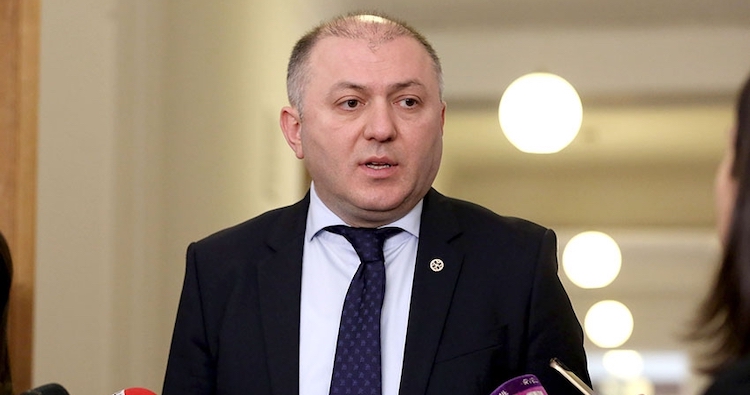State Security Service Head highlights Russian occupation’s “major threat” to national security

Liluashvili told PMs the “processes aimed at annexation” by Russia were “actively continuing” in the occupied regions. Photo: SSS of Georgia
Grigol Liluashvili, the Head of the Georgian State Security Service, on Wednesday told the Parliament Russia’s occupation of the Abkhazia and South Ossetia (Tskhinvali) regions of the country had posed a “major threat” to national security throughout the past year.
Liluashvili told PMs the “processes aimed at annexation” by Russia were “actively continuing” in the occupied regions.
“Despite the Russia-Ukraine war, just like last year, illegal military activities - including illegal military exercises and rotation of personnel - were actively pursued by the Russian occupying forces illegally stationed in the occupied territories of Georgia”, he said.
Part of the personnel of the 7th and 4th military bases of the Southern Military District of the Russian Federation was involved in the Russian-Ukrainian war, [and] the occupying force actively used population from the occupied regions in the fighting [in Ukraine]”, the official added.
Liluashvili also reviewed a decision of the de facto authorities in Abkhazia to transfer 186 hectares of territory in the Bichvinta resort town to Russia on a 49-year lease.
“By completing the mentioned process in favour of Russia, Moscow has demonstrated that any protest against its will and interests in the occupied territories is futile”, Liluashvili said.
He also noted Moscow’s plans to deploy a permanent naval military base in the city of Ochamchire in the region, telling lawmakers a lack of water area and complex infrastructure for the port made deployment and service of large-size warships at the location “unlikely at this stage”.
Liluashvili added an “agreement” signed between the occupation regime and de facto Abkhazian authorities on restoration of the airport of the city of Sokhumi would become an “additional leverage” for Russia in order to “strengthen its political and economic positions in the region”.
 Tweet
Tweet  Share
Share